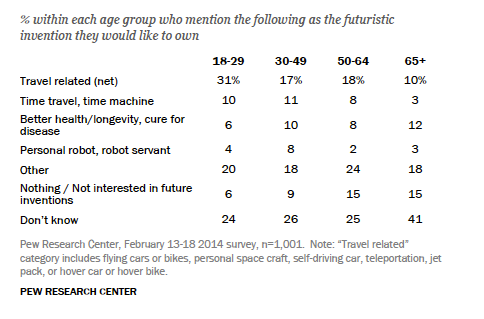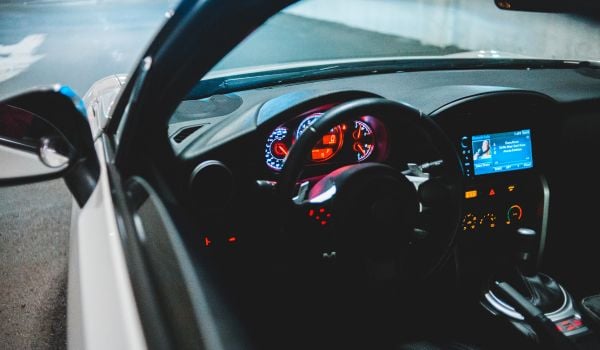The Pew Research Center is out today with a new report called “U.S. Views of Technology and the Future: Science in the Next 50 Years.” Researchers surveyed 1,001 American adults for their opinions on a wide range of science fiction-like innovations now on the horizon, from lab-grown deli meats to robot caregivers to tweaking embryonic DNA to produce more athletic babies. How optimistic we are about technological progress, writes the Pew report, “says something about the state of the American dream.”
If that’s true, we’re mostly hopeful about our future. And also a little weirded out.
On the over-arching question of whether advancements in science and technology will make life better in the next half-century, 59 percent said that they would, while only 30 percent said the new toys would make things worse.
But when it comes to the new gadgets that will likely have the most impact on life in cities, we’re a wee bit more frightened.
Drones are on track to be approved for broad use in U.S. airspace, opening the door to everything from delivering the latest best-seller to conducting fly-by news gathering. Momentum is on their side. And yet, finds Pew, just 22 percent of Americans think it’s a positive change to allow commercial or drones to freely operate overhead in the United States. That makes the domestic unmanned aerial vehicles considerably less popular than weaponized drones used to target terrorists overseas. That said, adoption will likely be mostly driven by corporate users. Americans may well forget their misgivings when they’re getting Chinese food airlifted their way in minutes.

And bit more popular than either are self-driving cars of the sort with which companies like Google and Nissan, and Audi experimenting. The public is about evenly split about whether or not they’d like to take a ride in an autonomous vehicle. There’s a geographic twist. While just about half of urban and suburban Americas are interested, among rural Americans that response drops to 36 percent. Keep in mind, though, that time seems on the side of technology-assisted travel. When asked a free-form question about what futuristic gizmo they’d most like to have, nearly one in three 18-to-29-year-olds picked a transportation-related innovation, from hover cars to flying bicycles to jet packs.
But that’s Earth-bound travel. Should we turn our cities in dystopian nightmares full of hovering drones, bionic Peeping Toms, and self-sovereign cars, might we leave it all behind for possibilities on other planets? We don’t think so, at least not by 2064. Six out of ten Americans, finds the Pew Research Center report, say that space colonies “won’t happen.”

Nancy Scola is a Washington, DC-based journalist whose work tends to focus on the intersections of technology, politics, and public policy. Shortly after returning from Havana she started as a tech reporter at POLITICO.










